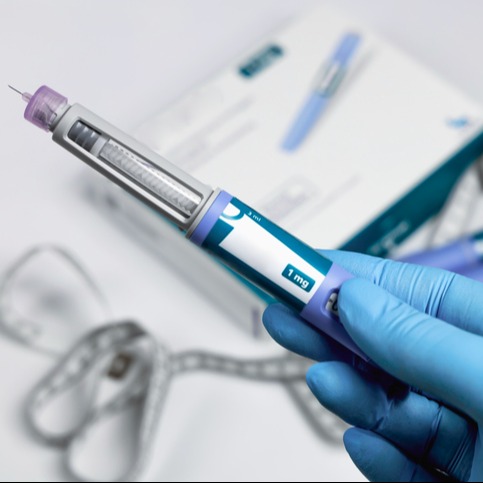
Key Takeaways
Compounded semaglutide poses significant risks due to variable quality and safety.
Unlike FDA-approved drugs, compounded medications lack stringent regulatory oversight.
Inaccurate dosing can lead to severe health consequences, including serious adverse effects.
Compounded versions may contain unknown excipients that can alter safety profiles.
Using compounded drugs can undermine the trust in the patient-doctor relationship.
Compounded medicines are in the news today because of the surge in demand for the diabetes drug semaglutide (marketed as Ozempic and Rybelsus, among others). This drug is also used for weight loss by individuals without diabetes.
What Are Compounded Medicines?
Compounding pharmacies provide a valuable service to the community. I learned about compounded medicines firsthand as a physician. In the MetroWest region of Massachusetts, where I practiced, I witnessed the benefits and challenges of compounding pharmacies.
Let’s start with the basics. According to the Food and Drug Administration (FDA), compounded medications are custom-made drugs created by combining, mixing, or altering ingredients to meet the specific needs of individual patients. This can involve blending multiple medications. It's important to note that the FDA does not approve compounded medications.
The Good: Who Needs Compounded Drugs?
I learned about compounding pharmacies the day a compounding pharmacist reached out to me, offering to meet and explain his work. He ran a licensed pharmacy in a neighboring town, and since I rarely turn down meetings, I accepted his invitation. As a pediatrician, he was particularly eager to show me a medication he had prepared to treat painful mouth sores in children with hand, foot, and mouth disease—a viral infection whose name sounds worse than it actually is. The most troublesome symptom is the mouth sores, which can make it difficult for a child to drink water and, in rare cases, lead to dehydration. While there is a medication available for these sores, it tastes terrible, and most young children refuse to take it.
The pharmacist showed me his version of the medication, molded into a shape resembling a pacifier. The idea was that the child could suck on it, allowing the medication to numb the sores. I tried it myself; while it didn’t taste great, it was significantly less bitter and unpleasant than the original medication I had been prescribing.
This mouth sore medicine exemplifies the benefits of compounded medications. They are ideal for patients who cannot tolerate traditional prescriptions due to taste, have difficulty swallowing pills, or are allergic to certain coloring agents.
The Bad: Can Semaglutide be Compounded?
In instances of drug shortages, such as with semaglutide, the FDA approves compounded versions to ensure patients can access necessary medications. Compounded semaglutide received this FDA approval; however, shortly after, the FDA began receiving reports of adverse events associated with it.
Some compounding pharmacies were supplying semaglutide salts, which contain the original medication but in forms that have not been proven safe or effective. Additionally, some disreputable online sources began offering fraudulent or unapproved formulations of semaglutide, some containing little or no active ingredient.
The Ugly: The Case of the New England Compounding Center
I lived just around the corner from the New England Compounding Center for many years and would drive past the strip mall where this unassuming building was located daily. One day in 2012, I noticed police tape surrounding the building and learned that the company had been shut down.
The pharmacy had been providing a preservative-free steroid for use in spinal injections, but the vials became contaminated with fungus. Over 700 patients were infected, and 64 died. Eight years later, prison sentences were handed down to the pharmacist responsible for the contamination. I had no idea of the extent of the harm caused by this facility until much later.
Beware of Compounded Medicines
Compounded drugs like semaglutide present significant risks that warrant careful consideration. The appeal of compounded semaglutide often lies in its potential cost savings and accessibility, especially when commercial supplies are limited. However, the dangers associated with compounded semaglutide are substantial and multifaceted.
First, the quality and safety of compounded semaglutide can be highly variable. Unlike FDA-approved medications, compounded drugs are not subject to the same rigorous regulatory oversight. This lack of regulation means there is no guarantee that the compounded version contains the correct dosage or is free from contaminants like fungus. Inaccurate dosing can lead to severe health consequences—underdosing reduces the drug's efficacy, while overdosing increases the risk of adverse effects such as hypoglycemia, pancreatitis, and gastrointestinal issues.
Moreover, compounded medications may not be produced in facilities that meet the high standards of sterile drug manufacturing, increasing the risk of contamination with harmful bacteria or other pathogens. Since semaglutide is often administered via injection, ensuring the sterility of the product is crucial to prevent potentially life-threatening complications.
Another critical concern is the potential for harmful interactions and side effects that are not well-documented or understood. While semaglutide’s interactions with other medications and its side effect profile are well-studied in its FDA-approved form, compounded versions may include different excipients or fillers that could alter their safety profile. This unpredictability poses significant risks to patients, particularly those managing complex health conditions.
Significantly, the use of compounded semaglutide undermines the patient-doctor relationship and erodes trust in prescribed medications. Physicians prescribe FDA-approved drugs based on evidence of their safety and efficacy. Turning to compounded alternatives can bypass this trust, potentially leading to suboptimal treatment outcomes and compromising patient safety.
While the cost and availability of compounded semaglutide may be attractive, the associated risks far outweigh these benefits. The lack of regulatory oversight, potential for contamination, inaccurate dosing, and unknown side effects make compounded semaglutide a dangerous alternative to its FDA-approved counterparts. Patients must prioritize safety and efficacy by using medications that have undergone rigorous testing and approval by regulatory authorities.
Rely on PlanetDrugsDirect.com to Buy Online Prescription Drugs
As a trusted prescription referral service, we offer important benefits whenever you order online. Each of our partner pharmacies and/or government-approved dispensaries is committed to providing the best experience possible of any online prescription referral service on the internet. We offer:
Low prices
Quick turn-around times
Generic and brand-name medications
Unparalleled customer service
Sources
Carvalho M, Almeida IF. The Role of Pharmaceutical Compounding in Promoting Medication Adherence. Pharmaceuticals (Basel). 2022 Aug 31;15(9):1091. doi: 10.3390/ph15091091. PMID: 36145312
Gudeman J, Jozwiakowski M, Chollet J, Randell M. Potential risks of pharmacy compounding. Drugs R D. 2013 Mar;13(1):1-8. doi: 10.1007/s40268-013-0005-9. PMID: 23526368; PMCID: PMC3627035.
Kircik L, Siegel DM. Clinical and Legal Considerations in Pharmaceutical Compounding. J Clin Aesthet Dermatol. 2023 Aug;16(8 Suppl 1):S23-S28.
U.S. Food and Drug Administration. Mitigating Risks of Compounded Drugs Through Surveillance. https://www.fda.gov/drugs/human-drug-compounding/mitigating-risks-compounded-drugs-through-surveillance. September 20, 2023. Accessed September 21, 2024.
Watson CJ, Whitledge JD, Siani AM, Burns MM. Pharmaceutical Compounding: a History, Regulatory Overview, and Systematic Review of Compounding Errors. J Med Toxicol. 2021 Apr;17(2):197-217.
 Medically reviewed by
Medically reviewed by 





